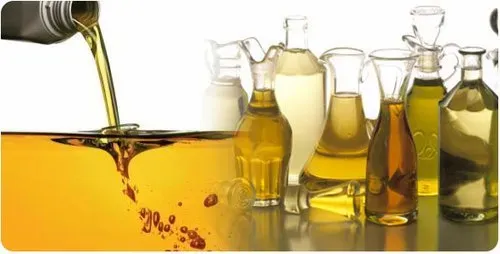- Armor Blog
- Technical
- Laboratory Testing of Hydraulic Fluid Compatibility

Recognize the Importance of Hydraulic Fluid Testing
These fluids are the lifeblood of hydraulic systems, however, using wrong incompatible hydraulic fluids can do more harm than good causing more damage to the equipment such as:
- Seal damage
- Diminished lubrication
- Catastrophic system failure
A thorough laboratory test we can examine the oil, measure the concentration of impurities and test their concentration of impurities, test their effect on different material. Therefore we will be able to know for sure if the new hydraulic fluid is compatible with the existing fluid or if it can safely be introduced into the system, and how safe is to use for equipment.
How To Perform a Test in The Lab?
Collect Samples
The initial step is to gather samples of the existing fluid and the new fluid intended for use. Be cautious during this step; the accuracy of the subsequent results relies heavily on the representativeness of these samples. Thus, ensure that samples are gathered following proper sampling procedures, from the correct locations, and stored appropriately to avoid contamination.
Test the Individual Fluid Properties
The next phase involves evaluating the physical and chemical properties of each fluid individually. Such properties include viscosity, water content, oxidation stability, and anti-wear characteristics, among others. This process provides insights into the individual performance attributes of the fluids.
Compatibility Tests
Post individual hydraulic fluid testing, the real compatibility evaluation begins. This process typically includes mixing the two hydraulic fluids in varying proportions, replicating what might occur in the hydraulic system during a fluid changeover. The mixtures are then observed for signs of incompatibility, such as precipitation, changes in viscosity, or phase separation.
Analyzing Results
Interpreting the results demands a nuanced understanding of hydraulic systems and fluid properties. Noticeable alterations in the fluid mixtures or significant differences in properties often indicate potential compatibility issues. Conversely, minimal changes signify that the fluids are likely compatible.
Miscibility and Compatibility
Distinguishing between miscibility and compatibility is important. Lubricants blend different base oils and additives in specific proportions to achieve desired performance. When mixed, there can be reactions resulting in the formation of substances that do not dissolve, clumping together, layering, or becoming insoluble.
Miscibility
Miscibility refers to the ability of two substances to completely mix in any concentration, forming a uniform solution. Immiscible fluids exhibit separation, clumping, layering, or the formation of insoluble substances. Clearly, immiscible fluids are incompatible.
Compatibility
Compatibility is a general term applicable to metals, seals, paints, materials, and so on. In the case of hydraulic fluids, compatibility means they can be mixed without losing their properties or performance.
When hydraulic fluids are mixed, the ingredients may interact, resulting in additives becoming insoluble, changes in composition, or performance deterioration. While new hydraulic fluids may be compatible, the existing fluid in use could be degraded or contaminated to an extent that the new fluid added may not be compatible with it. Evaluating the compatibility of in-service fluids with new additions should be done on a case-by-case basis to ensure the mixture retains the necessary properties.
Armor Lubricants Hydraulic fluids
Armor Lubricants is a prominent manufacturer of hydraulic fluids in the UAE and is widely recognized for producing top-notch products of superior quality. They have earned a reputation for providing hydraulic fluids that are exceptionally well-suited for use in various types of hydraulic machinery. With their commitment to excellence, Armor Lubricants has emerged as a leading industry player, delivering high-performance lubricants that meet the needs and requirements of a diverse range of hydraulic systems.




 Spear Lubricants
Spear Lubricants Armada lubricant
Armada lubricant Ace lubricants
Ace lubricants Perfect lubricants
Perfect lubricants Enzo lubricants
Enzo lubricants Lawrence lubricants
Lawrence lubricants